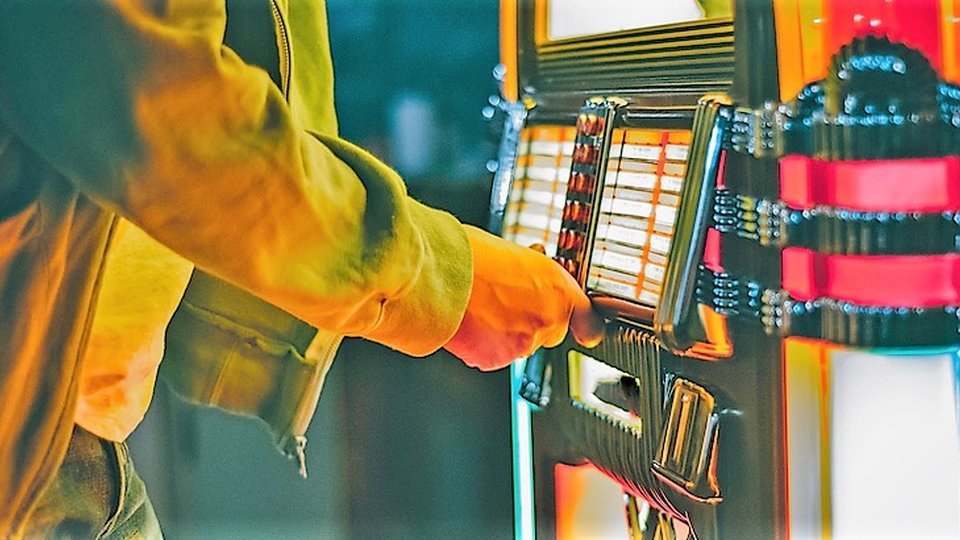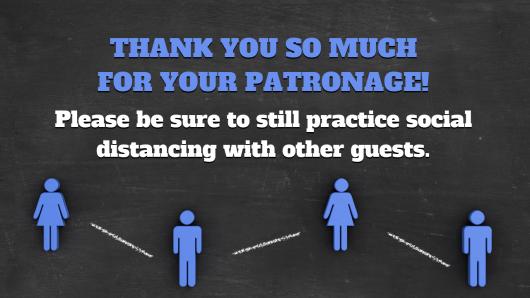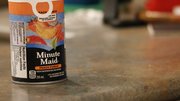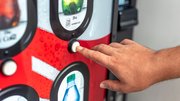Music & Games
Talking With: Mike Maas, CEO, AMI Entertainment Network, on COVID-19 recovery
Vending Times caught up with Mike Maas, CEO of AMI Entertainment Network, one of the oldest and largest suppliers of jukeboxes, to get his take on how the industry has weathered this challenge and how it will rebound.

June 1, 2020 by Elliot Maras — Editor, Kiosk Marketplace & Vending Times
The coronavirus pandemic has dealt one of the biggest setbacks ever for the amusement machine industry. The closure of bars has been especially devastating to jukebox operators.
But as bars and restaurants reopen, jukebox operators are gearing up for a comeback. Late last week, Vending Times caught up with Mike Maas, CEO of AMI Entertainment Network, one of the oldest and largest suppliers of jukeboxes, to get his take on how the industry has weathered this challenge and how it will rebound.
In the 12 years Maas has been with the company, it has grown from less than 3,000 jukeboxes to 35,000 worldwide, most of which is in the U.S. The company operates using a shared revenue model with its 2,500-plus operator partners and the locations they serve.
 |
| Mike Maas is optimistic for the jukebox industry. |
Following are excerpts from the conversation.
Q: How has the COVID-19 affected the jukebox industry?
A: We had the best month that we had in a long, long time in February. In March, we had the worst month in a long, long time. It (revenue) essentially went to zero in March. We participate completely in sync with the fortunes of our customers. Which is great because it puts us in alignment with them so that we can make the investments we need to make to help them make more money.
Q: With bars and restaurants reopening, are you seeing a recovery?
A: In May, we've been seeing a pretty nice resurgence. A little over a third of the jukeboxes are back online. As states get to different levels of recovery, we see the jukeboxes coming back online.
Q: What geographic trends are you noticing about the recovery so far?
A: It all depends on the states. Alabama and the Dakotas are open. We're back to full strength in those places. In New York, it's (still) a full shutdown. Nobody's in bars in New York.
In the places it's recovering, it's recovering fast, like 100%, literally overnight.
A: Are you optimistic about the industry's recovery?
Q: Absolutely. We think there are a number of attributes of the jukebox which at least for a while will make it potentially even stronger than it was. Live music and karaoke may not be coming back right away. Live sports are not being actively pursued right now. Some of the gaming products are not being allowed because of the touchscreens.
We offer our customers mobile access with our consumer app, so there's no need to touch the screen. In places where it's a concern, we have completely mobile access. There's going to be a need for entertainment as people come back to these locations. We actually think we'll be stronger.
I look at every state (jukebox activity) every day and I get comprehensive data. If I didn't watch the news at all, I can tell you for every state whether the restaurants and bars are open or not just based on the data coming out of the jukeboxes.
It is very clear to me that there is huge fundamental demand for jukeboxes. 25% occupancy is enough to get the jukebox (revenue) right back where it was.
It's just a matter of time till the rest of the states follow and we'll be back.
Q: What has your company done in response to the situation?
A: We've done a number of things. We were very slow to make any internal changes. We knew operators were going to go through difficult times as they had to shut down units, so we kept everybody (employees) on for quite some time when most other companies were furloughing people to save cash. Our operators needed us. We've since furloughed a portion of the company as things slowed down.
We've also managed to do a number of things to help the customers.
 |
| Jukeboxes and TV screens can display public health messages for customers. |
The biggest thing we did was we created Fast Blast. We have an app besides our consumer app that is for operators and the location staff we call Co-Pilot that provides remote control of the jukebox so you can change the volume and do things you would otherwise have to have physical remote control to do. Operators can turn jukeboxes on and off, check the status, etc.
Operators and/or their venues can send a customizable "we're re-opened for business" message directly to the smartphones of every AMI Music app user that has purchased music on its jukebox. They can check the status of each jukebox, reboot a device, change the background music station, create ads and much more — all from the palm of their hand.
The location or the operator can schedule a message, and the message will go to all of the patrons to use the consumer app in the past six months before it shut down.
 |
Something like 15,000 patrons have gotten these messages in the past couple weeks since we launched this. It's free, and operators love it.
The other thing that we've done is a technology called Ad Manager, which is essentially a digital signage package. It allows a location or an operator to schedule ads that go up on the screens of the jukebox and the TV screens that show the music videos. We've added a "public health" category to our suite of 1,700-plus Ad Manager templates already available via AMI's free digital advertising tool. These new templates aim to inform patrons of safety precautions venues are taking to help demonstrate their compliance with CDC guidelines for COVID-19.
Q: What should operators be doing during this downtime?
A: I'm really hoping that in this downtime that operators are taking some time first to learn about what some of the technology that we have is. It doesn't always get used to its fullest. Secondly, I think the mobile app and what we're doing with Ad Manager are things the good operators are going to use to their advantage. That's going to help them make money when people start coming back to bars and restaurants.
Q: Are operators looking at alternative types of locations for jukeboxes?
A: Good operators are always looking. Through the years, in conjunction with operators, we've tried jukeboxes in pretty much every location you can do. The truth of the matter is they work best in bars.
One thing we're seeing is that patios are becoming a new thing, so we are seeing the need for sound on patios, and we're helping operators do that.
While some states have not been able to open for dine-in services, they are able to open for outdoor seating. It's simple to connect our jukeboxes to outdoor speakers or sound systems. And with the AMI Music app, patrons can easily select music right from their seat and without touching the jukebox.
Overall, I'm very excited for the industry's future.
Images courtesy of AMI Entertainment Network.
About Elliot Maras
Elliot Maras is the editor of Kiosk Marketplace and Vending Times. He brings three decades covering unattended retail and commercial foodservice.
 ChatGPT
ChatGPT Grok
Grok Perplexity
Perplexity Claude
Claude






